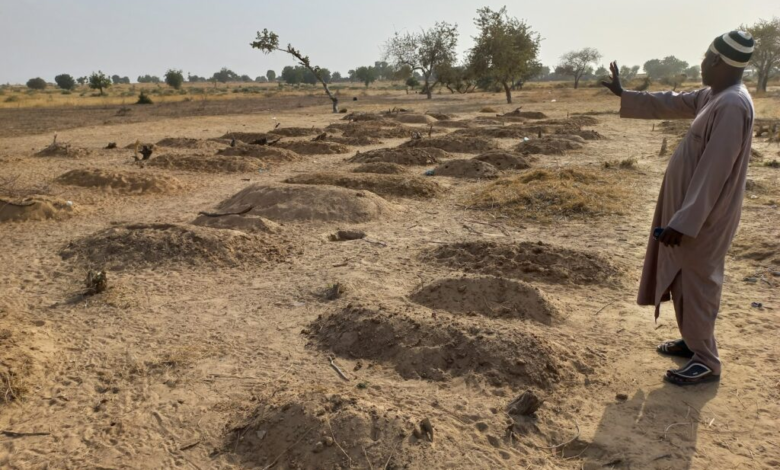Food Insecurity Looms In Northeast Nigeria Ahead Of Lean Season- Report
Over 1.4 million people in Borno, Yobe and Adamawa states, Northeast Nigeria are at the risk of acute food insecurity levels in the coming lean seasons.

Projections from Cadre Harmonise (CH), an organisation that shares information on the risks of worsening food security in vulnerable areas, has estimated that over 1.4 million people are at risk of acute food insecurity in Northeast Nigeria in June and August 2022.
In its latest report, the Cadre Harmonise revealed that Borno, Adamawa, and Yobe states are going to witness high prevalence in poor feeding practices.
It indicated that during the June and August lean season (the period between planting and harvesting when food stocks are abated and poor families regularly skip meals), there could be food insecurity.
Despite witnessing some cuts in food assistance due to funding shortages, the analysis report estimated 587,955 people are expected to be in IPC Phase 4 (emergency phase).
According to the CH report, the nutrition screenings are also showing concerning trends of higher severe acute malnutrition admissions than moderate acute malnutrition cases.
The analysis also estimated that an average of 10 severe acute malnutrition children were admitted daily to stabilisation centres in Bama town from early to mid-March.
According to the Integrated Food Security Phase Classification (IPC) acute malnutrition report, the number of acutely malnourished children and women is expected to significantly increase this year and further worsen in the lean season. It indicated that 1.74 million children between six and 59 months will need treatment for acute malnutrition.
Many IDPs in Borno State are facing dire humanitarian crises since the decision by the state government to ban distribution of food and non-food items to IDPs camps.
Since the ban, IDPs in Borno State have expressed their grievances over the death of many displaced persons who were bitten hard by the hunger crisis.
Attacks on IDP locations
The conflict emerging from terrorists in Northeast Nigeria has eroded living conditions for millions of internally displaced persons (IDPs) and caused a devastating hunger crisis in agricultural production and livelihood.
At least three terror attacks and clashes were recorded near IDPs camps in Bama, Damboa, and Ngala LGAs in March.
Many IDPs camps were resettled in dangerous towns where the Nigerian Armed Forces have launched countless airstrikes. Over time, these attacks have created deaths, humanitarian consequences, congestion, unhealthy living conditions, and constraints on farmers’ livelihood.
Also, the recent trend of terrorists rocket attacks raises serious concerns for civilian safety, including in Maiduguri, Borno State capital which is the hub of the ongoing humanitarian response across the region. Maiduguri was hit twice in Dec. 2021 and once in Jan. 2022 killing civilians and damaging several facilities.
Support Our Journalism
There are millions of ordinary people affected by conflict in Africa whose stories are missing in the mainstream media. HumAngle is determined to tell those challenging and under-reported stories, hoping that the people impacted by these conflicts will find the safety and security they deserve.
To ensure that we continue to provide public service coverage, we have a small favour to ask you. We want you to be part of our journalistic endeavour by contributing a token to us.
Your donation will further promote a robust, free, and independent media.
Donate HereStay Closer To The Stories That Matter




